I currently receive emojis in a payload in the following format:
\\U0001F6A3\\U0000200D\\U00002640\\U0000FE0F
which represents "♀️"
However, if I try to display this, it only shows the string above (escaped with 1 less ), not the emoji e.g.
NSString *emoji = payload[@"emoji"];
NSLog(@"%@", emoji) then displays as \U0001F6A3\U0000200D\U00002640\U0000FE0F
It's as if the unicode escape it not being recognised. How can I get the string above to show as an emoji?
Please assume that the format the data is received in from the server cannot be changed.
UPDATE
I found another way to do it, but I think the answer by Albert posted below is better. I am only posting this for completeness and reference:
NSArray *emojiArray = [unicodeString componentsSeparatedByString:@"\\U"];
NSString *transformedString = @"";
for (NSInteger i = 0; i < [emojiArray count]; i++) {
NSString *code = emojiArray[i];
if ([code length] == 0) continue;
NSScanner *hexScan = [NSScanner scannerWithString:code];
unsigned int hexNum;
[hexScan scanHexInt:&hexNum];
UTF32Char inputChar = hexNum;
NSString *res = [[NSString alloc] initWithBytes:&inputChar length:4 encoding:NSUTF32LittleEndianStringEncoding];
transformedString = [transformedString stringByAppendingString:res];
}
